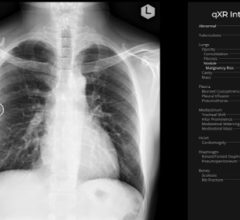
October 17, 2014 — Researchers find removal of entire lobe of lung offers increased survival benefit compared to partial resection; no difference between lobectomy, stereotactic ablative radiotherapy
Removal of the entire lobe of lung may offer patients with early-stage lung cancer better overall survival when compared with a partial resection, and stereotactic ablative radiotherapy (SABR) may offer the same survival benefit as a lobectomy for some patients, according to a study from The University of Texas MD Anderson Cancer Center.
The research is the largest population-based study to review modern treatment modalities for early-stage lung cancer and is published in JAMA Surgery.
According to the American Cancer Society, in 2014, 224,210 people in the United States are expected to be diagnosed with lung cancer, and more than 159,260 will die from the disease. Yet with the aging baby-boomer population colliding with spiral computed tomography (CT)-screening's acceptance as a screening tool for lung cancer, the number of cases diagnosed is expected to rise dramatically, says Shervin M. Shirvani, M.D., attending radiation oncologist at Banner MD Anderson Cancer Center in Arizona and an adjunct professor at MD Anderson.
The disease is typically a cancer of the elderly, and because of its association with smoking, patients often carry other comorbidities, such as COPD, coronary artery disease and renal failure.
Three treatment options are widely available for patients with early-stage disease: lobectomy, or removal of the entire lobe of lung; sublobar resection, or removal of the part of the lung that contains the tumor; and SABR, a precise form of radiation therapy delivered over three to five sessions.
"Currently, lung cancer is one of the most common and fatal cancers, and for the foreseeable future it will be one of the major health epidemics our country faces. Yet we don't have strong evidence-based guidelines for how to best treat the disease —especially when it's discovered early," says Shirvani, the study's first author.
Several randomized trials to compare the three modalities have been attempted, but each has been set back by low accrual and lack of participation by patients and physicians, he explains.
"In the absence of clinical trials, it was important to analyze observational data from a very large database to compare these three modalities. We wanted to compare lobectomy, the treatment generally thought to be the standard of care, to both the smaller surgery and stereotactic ablative radiotherapy, which does not carry surgical risk, and understand which may be best for this elderly patient population with extensive concurrent illnesses."
For the retrospective, population-based study, the researchers analyzed the Surveillance, Epidemiology and End Results (SEER) Medicare database to identify patients treated for non-small cell lung cancer between 2003 and 2009. In total 9,093 patients were identified. All received one of three treatment strategies: lobectomy (7,215 patients, or 79.3 percent); sublobar resection (1,496 patients, or 16.5 percent); and SABR (382 patients, or 4.2 percent). Of note, says Shirvani, is that the study's time-period reflects the earliest adopters of SABR.
Adjusting for characteristics associated with the patient, the tumor, economic factors and other co-variables, the researchers found that the lobectomy was associated with better overall and lung-specific survival, when compared to sublobar resection, a finding that surprised the researchers.
"The assumption was that for an elderly patient with a number of co-morbidities, the smaller surgery would be better than a whole lobectomy because there would be fewer surgical complications. Yet, it appears that the ability to eradicate the cancer with the bigger surgery may be more important than minimizing surgical risk," he explained.
When patients with similar baseline characteristics treated with lobectomy and SABR were compared, the two modalities were associated with similar overall survival and lung-cancer specific. This suggests that SABR is a very promising alternative to surgery for patients with very advanced age and multiple medical problems, features commonly observed in the matched populations.
While observational, Benjamin Smith, M.D., associate professor, Radiation Oncology at MD Anderson, hopes that the physicians will begin to exercise caution with the belief that a smaller surgery is better-suited for this patient population.
"Clearly, the incidence of early-stage lung cancer will increase dramatically in the next few years, and we need to be prepared to treat patients in the right way — balancing the effectiveness versus risk of treatment in an elderly population," says Smith, the study's corresponding author.
"Observational studies like ours give us insight into what the right treatment strategy should be, and hopefully will encourage both physicians and patients that prospective clinical trials are worth pursuing," he says.
For more information: www.mdanderson.org/newsroom/news-releases/2014/treatments-survival-bene…


 January 30, 2026
January 30, 2026 









